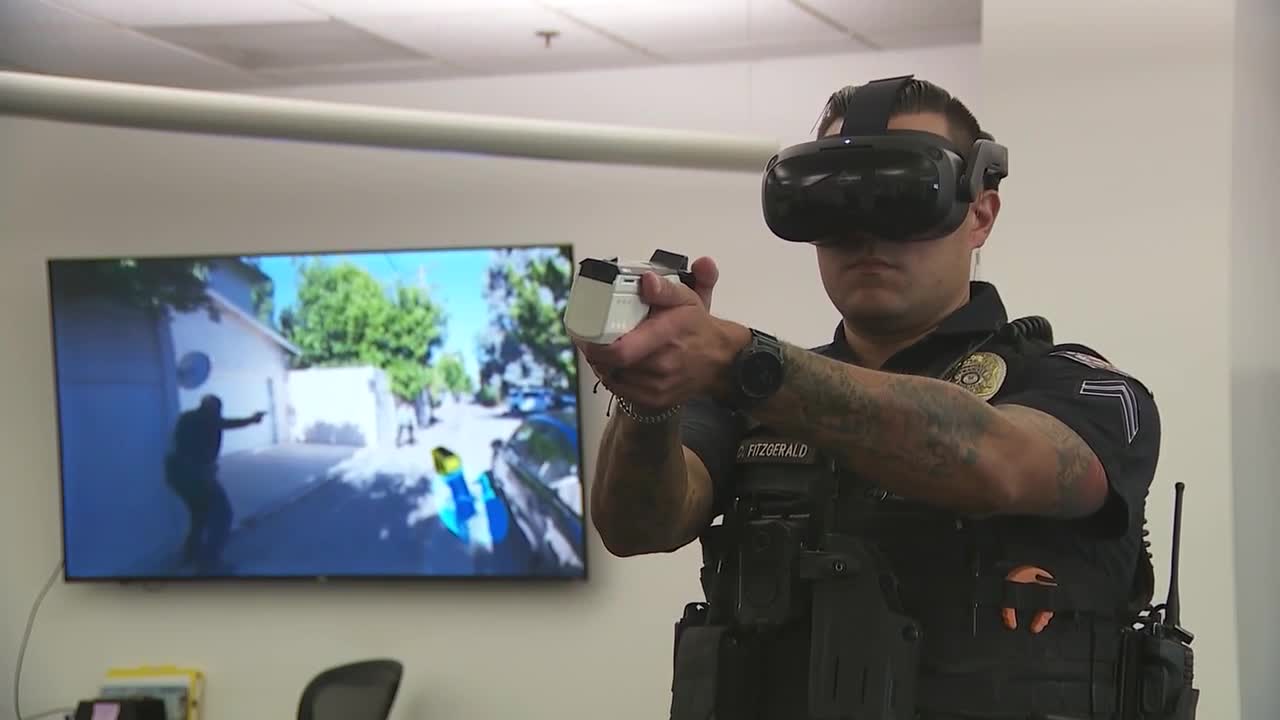DENVER — Denver’s Regional Transportation District (RTD) is turning to virtual reality technology to train its police officers for TASER certification and real-world scenarios.
Arizona-based company Axon is behind the technology, which has caught on at police departments across the country. Scripps News Phoenix covered city police officers who were among the first to use it back in 2022.
The Regional Transportation District's (RTD) police department launched its program this summer as a solution to make training more efficient. The department told Denver7 the six headsets and tablets cost $170,000 a year, but said that cost is offset by the VR cutting equipment costs and saving time.
“Maybe, like, 10, 15 minutes to set up this, and we can put you in the training scenario,” said Corporal Jacob Schubert, comparing that to a much longer process for a live, in-person TASER or scenario training.
Schubert said the department saves significant money by allowing officers to shoot TASER darts in virtual reality, rather than using live darts.

“We end up with hundreds more hours than just maybe your standard eight-to-10-hour day of training for TASER,” Schubert added. “This is invaluable, really, when it comes down to micro-training, giving the ability to do scenarios on demand, without hiring actors, without renting out venues or spaces.”
The VR program also drops officers into real-world scenarios they would encounter in the field.
“Anything from active shooter scenarios, disorderly conduct... Honestly, it feels natural,“ Schubert said. “It's kind of like, weirdly, how realistic it is once you're in the scenario. It really does feel like you're actually there.”
Officers can take the place of a community member in distress in the VR program before approaching that situation as law enforcement.
“We contact a wide variety of people [as RTD officers],” Schubert said. “[In the VR training], we can put [officers] in the shoes of a schizophrenic person, in the shoes of somebody experiencing autism, maybe someone who is deaf, so they can gain a better perception of what the community might be experiencing... Hopefully, we can connect with that person by building rapport and establish a relationship with that person, so we can get ‘em to a safe environment.”
The department said the technology is only getting better, and artificial intelligence (AI) could one day allow for two-way communication with virtual people in the program. For now, the program updates with new scenarios to keep officers fresh.
“I think it helps build the confidence out there, the confidence with using Taser 10, or the confidence and officer skills to de-escalate scenarios,” said Schubert. “We can do 20, 30 minutes of training, and then send that cop back into patrol, and they come out better.”
Just last month, the department told Denver7 that more visibility on RTD buses and trains has led to a drop in complaints around safety and drug use.






